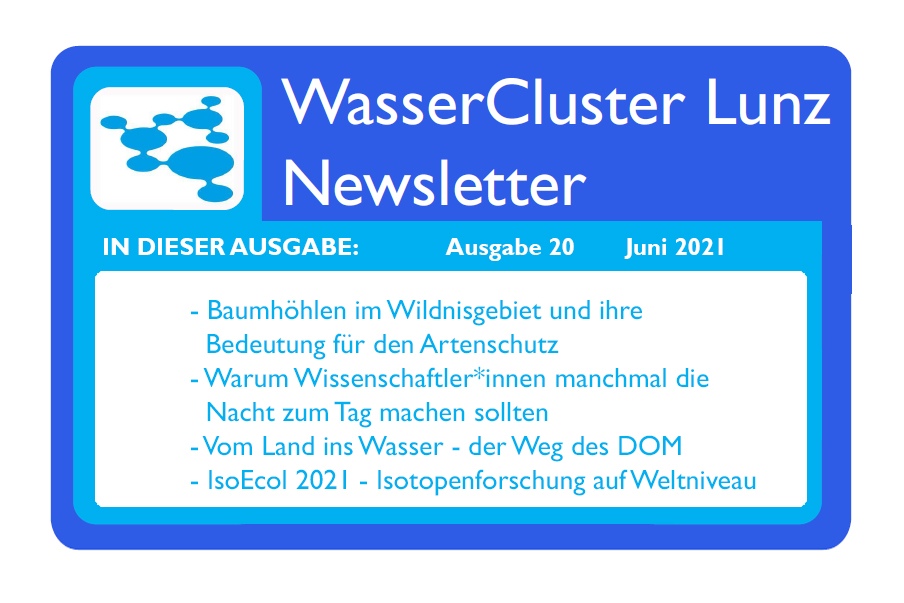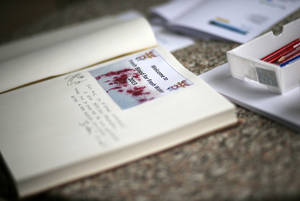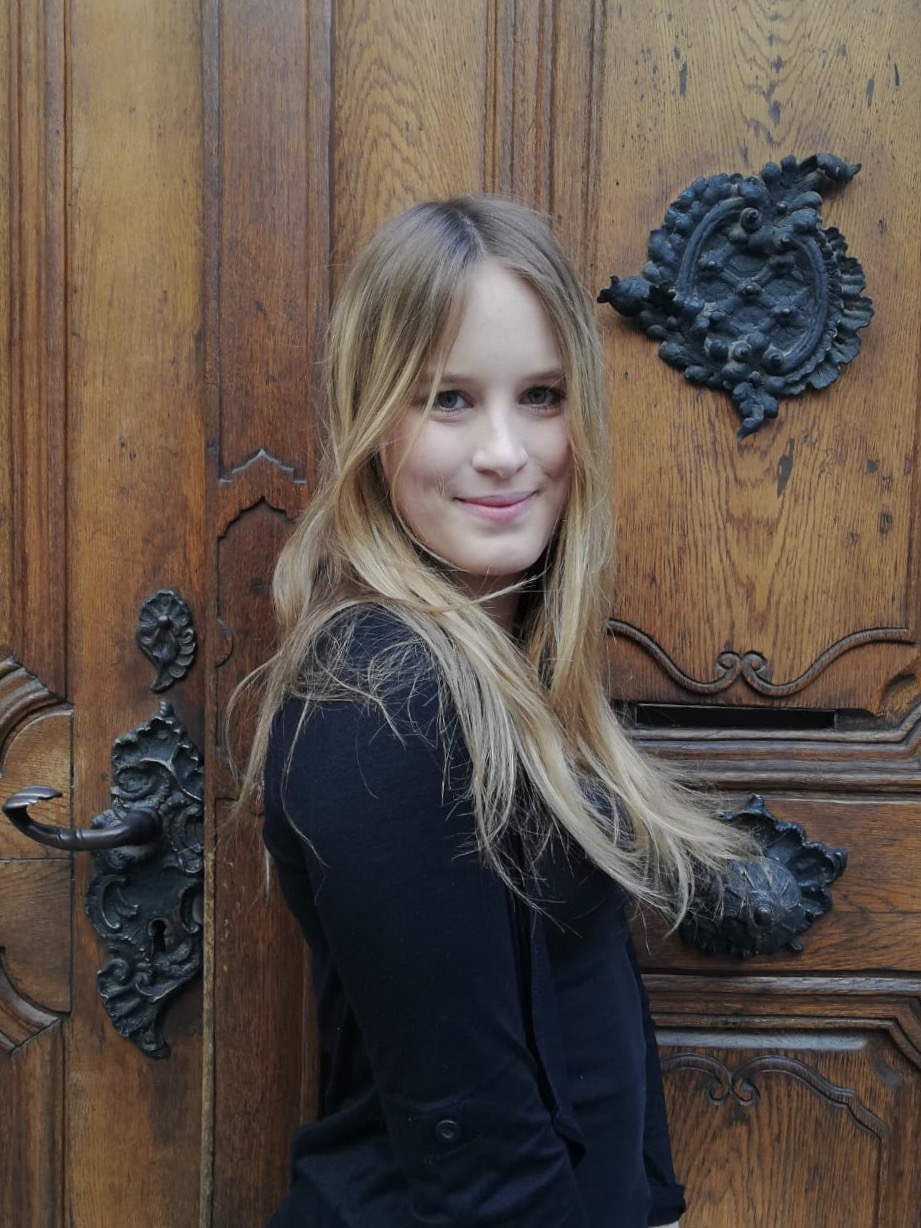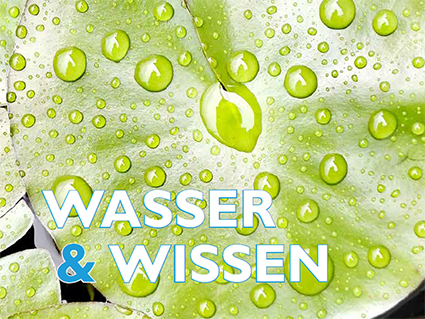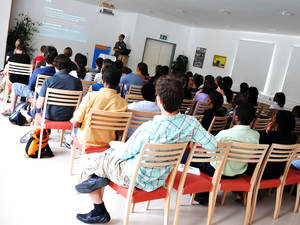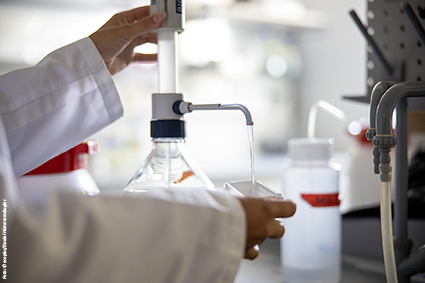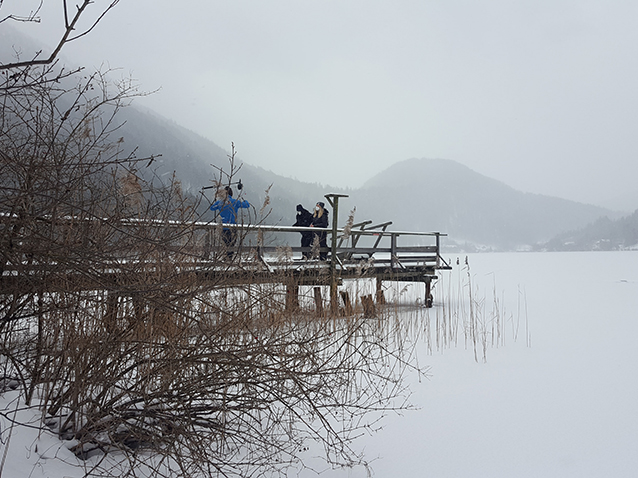Here is an overview of the topics:
- Baumhöhlen im Wildnisgebiet und ihre Bedeutung für den Artenschutz
- Warum Wissenschaftler*innen manchmal die Nacht zum Tag machen sollten
- Vom Land ins Wasser - der Weg des DOM
- IsoEcol 2021 - Isotopenforschung auf Weltniveau
In June 2021 Damiano Baldan successfully defended his PhD-thesis with the title "Modeling multi-scaled effectiveness of nature-based solutions in river systems" under the supervision of Thomas Hein from AG BIGER.
Congratulations!
In June 2021 Lisa-Marie Ziegler finished successfully her MSc-thesis with the title "Effects of desiccation on heterotrophic microbial activity in hyporheic sediments" under the supervision of Gabriele Weigelhofer and the co-supervision of Thomas Hein from AG BIGER.
Congratulations!
Eventful times lie behind us, as the Annual Report 2019/20 of WasserCluster Lunz, which is now available, shows.
What has been going on, you ask? Get an overview and have a look at the WCL Annual Report 2019/20.
You can find it at: http://wcl.ac.at/images/ueberuns/jahresberichte/WCL_Zweijahresbericht_2019_2020_web.pdf
Are you more a fan of analoge reports? No problem - at future events the report will be available for free, also a mailing can be arranged with the secretariat.
In order to promote a professional discourse and to enable interaction between researchers, students and other interested parties, WasserCluster Lunz regularly invites renowned scientists from all over the world to the WCL Seminar Series.
More information on the planned lectures and registration can be found here: http://wcl.ac.at/index.php/en/education/seminar-series
In the Servus TV report "Kampf dem Plastik - Wohin mit dem Müll?" on Thursday, 25.02. from 21:10, renowned scientists and experts from Austria will also have their say. Among them is Martin Kainz (AGL LIPTOX), who reports on his working group's research on plastic-digesting microorganisms.
In February 2021 we can congratulate five BSc students on their successful graduation:
- Manuel Gartner, BOKU
- Felix Hofer, BOKU
- Laura-Ainhoa Prischl BOKU
- Georg Rabl, BOKU
- Markus Reymaier, BOKU
All five Bachelor theses were written under the supervision of Gabriele Weigelhofer (AG BIGER).
Congratulation!
On 5.2.2021, NÖ heute will be dedicated to science. Because of this an ORF film team was on site at the WasserCluster Lunz and gained insights into field research in wintry conditions.
Here are the details: ORF2 NÖ heute - 5.2.2021, 19:00
Those who prefer to inform themselves via radio have the opportunity to learn more about water research and the topic of drinking water at the Ö1 Radiokolleg. Here, too, a staff member of WasserCluster Lunz, Gabriele Weigelhofer (WG-Leader BIGER) was interviewed.
Here are the details: Ö1 Radiokolleg - Trinkwasser in Österreich - 1. bis 4.2.2021




